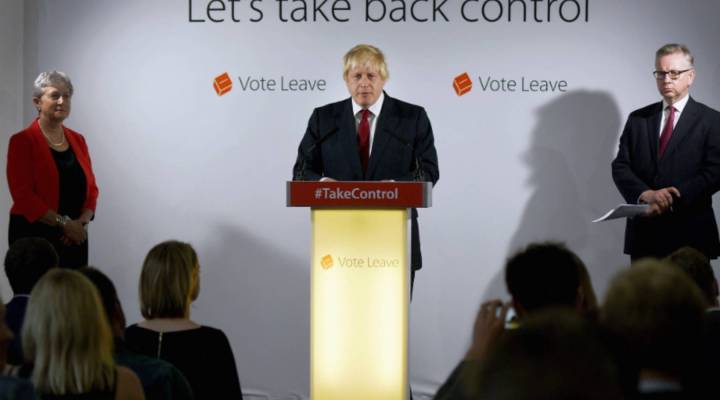
Brexit result will test U.S. banks
Share Now on:
Brexit result will test U.S. banks

The U.K. has decided to leave the European Union, casting uncertainty over immigration, trade and the world’s financial markets. “Leave” voters won 52 percent to 48 percent, according to our partners at the BBC.
But despite the turmoil that global markets and “Remain” voters are currently facing, some business leaders are still projecting enthusiasm about the region’s future.
Paul Marriage, a fund manager who runs a small business fund, was fairly upbeat. He told Marketplace that a weak sterling is “generally quite good for U.K. exporters. The sun came up this morning like it did yesterday … we’re a very dynamic economy.”
Every major U.S. financial firm has substantial operations in London, which they use as a gateway to the European banking system. “U.K. banks have an access to the Eurozone payment system,” said Ilaria Maselli, a senior economist at the Conference Board.
So if you cut off the U.K., you cut off the banks.
“Financial firms in London, whether U.S. or based anywhere else, might have to set up duplicate operations somewhere in Europe,” said David Hilder, senior bank analyst at Drexel Hamilton. Duplicate operations, duplicate regulations. He says this can cost a firm like JP Morgan dearly over time. “I mean potentially on the order of hundreds of millions of dollars,” Hilder said.
This post has been updated.
There’s a lot happening in the world. Through it all, Marketplace is here for you.
You rely on Marketplace to break down the world’s events and tell you how it affects you in a fact-based, approachable way. We rely on your financial support to keep making that possible.
Your donation today powers the independent journalism that you rely on. For just $5/month, you can help sustain Marketplace so we can keep reporting on the things that matter to you.












